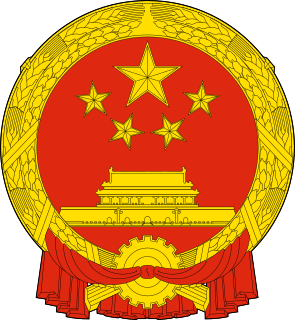 W
WThe China Banking and Insurance Regulatory Commission (CBIRC) is an agency of the People's Republic of China (PRC) authorised by the State Council toSupervise the establishment and ongoing business activities of banking and insurance institutions. Take enforcement actions against regulatory violations.
 W
WThe China Banking Regulatory Commission (CBRC) was an agency of the People's Republic of China (PRC) authorised by the State Council to regulate the banking sector of the PRC except the territories of Hong Kong and Macau, both of which are special administrative regions. In response to their swelling debt loads, undercapitalization and non-transparent business practices, the government of China recapitalized the banks and set up the CBRC as the country's independent banking regulator in 2003. Liu Mingkang was appointed its first chairman and served until 2011, when he was replaced by Shang Fulin. In 2017, Shang was replaced by Guo Shuqing as the new chairman.
 W
WGRG Banking is a Chinese listed enterprise, specialized in the financial self-service industry. GRG Banking is engaged in research and development, manufacturing, sales and service, software development for automated teller machines, AFCs(Automated fare collection) and other currency recognition and processing equipment.
 W
WThe Imperial Bank of China was the first Chinese-owned bank modelled on Western banks and banking practices. It was founded in Shanghai by Mr. Sheng Xuanhuai in 1897 successfully operating until 1913 when it was renamed to the Commercial Bank of China. The "rebranding" was for political reasons following the overthrow of the last emperor Pu Yi by the Nationalists in 1911.
 W
WPiaohao, also known as piaozhuang (票莊), huihao (匯號), or huiduizhuang (匯兌莊), in Mandarin Chinese, or Shanxi banks (山西票號) or Shansi banks in English, were a type of bank that existed in China during the Qing dynasty until approximately 1952.
 W
WQianzhuang, alternatively known as qiansi (錢肆), qianpu (錢鋪), yinhao (銀號), duihuan qianzhuang (兌換錢莊), qiandian (錢店), qianzhuo (錢桌), duidian, qianju (錢局), yinju (銀局), or yinpu (銀鋪) in Mandarin Chinese, and translated as money shops, native banks, private Chinese banks, or old-style banks in English, were a large number of small native Chinese banks that operated independently of the nationwide network of Shanxi banks, these banks first sprung up during the Ming dynasty but greatly expanded during the Qing dynasty. Unlike the Shanxi banks, the qianzhuang tended to have much more risky business practices.
 W
WChinese shadow banking refers to underground financial activity that takes place outside of traditional banking regulations and systems. China has one of the largest shadow banking industries with approximately 40% of the country's outstanding loans tied up in shadow banking activities. Shadow banking in China arose after the People's Bank of China became the central bank in 1983. This encouraged commercial enterprises and private investors to place more of their money in financial products, causing the banking industry to grow.
 W
WThe Ta-Ching Government Bank, known as the Ta-Ching Bank of the Ministry of Revenue (大清戶部銀行) from 1905 to 1908, was the name of the Bank of China as a government agency of the Manchu Qing dynasty until the empire's dissolution in 1911. It was originally created to serve as the central bank of China in 1905, originally as a division of the Ministry of Revenue, and would serve as the country's de facto central bank until the establishment of the Central Bank of China in 1924.
 W
WUnionPay, also known as China UnionPay or by its abbreviation, CUP or UPI internationally, is a Chinese financial services corporation headquartered in Shanghai, China. It provides bank card services and a major card scheme in mainland China. Founded on 26 March 2002, China UnionPay is an association for China's banking card industry, operating under the approval of the People's Bank of China. It is also an electronic funds transfer at point of sale (EFTPOS) network, and the only interbank network in China that links all the automatic teller machine (ATMs) of all banks throughout the country.